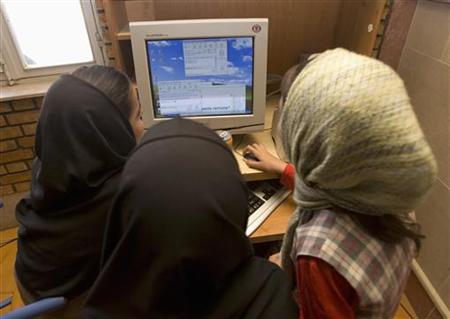Iran-US advisory group recommends technology-based policy
27 Mar 2010 16:152 Comments
 An advisory task force comprising U.S., EU, and Iranian members was convened by The Century Foundation's Inside Iran project in collaboration with the National Security Network -- two policy research institutes among Washington's most liberal think tanks. Over the next year, the group will assemble recommendations for U.S. policy on Iran, focusing specifically on ways to empower the Iranian opposition inside the country.
An advisory task force comprising U.S., EU, and Iranian members was convened by The Century Foundation's Inside Iran project in collaboration with the National Security Network -- two policy research institutes among Washington's most liberal think tanks. Over the next year, the group will assemble recommendations for U.S. policy on Iran, focusing specifically on ways to empower the Iranian opposition inside the country.
The group's first meeting in February examined the Iranian government's tightening restrictions on information technology, designed to limit channels of communication, the free flow of information, free expression and activism among Iranian citizens.
The task force's Iranian participants (whose names have not been disclosed and have only been described as "prominent activists") emphasized the central role of information and communication technologies for Iran's opposition, widely viewed as a broad social movement calling for political reform in the face of the ongoing political crisis triggered by last year's controversial presidential election.
The Iranian advisors in the task force agreed that the United States "should embark on a clear policy to liberalize the power of digital technology," insideIRAN.org reported earlier this week. They meanwhile opposed tougher general sanctions and any moves that would provoke harsher crackdowns by the regime on civil society.
The force's initial set of policy recommendations sent to member of Congress include providing free, secure email access and Skype credits to Iranian internet users; funding web developers to partner in building Persian-language websites for civil society; sanctioning companies that assist the Iranian government in Internet filtering and surveillance; providing the use of satellites equipped with noise filtering and anti-jamming capability; facilitating the provision of high-speed satellite-based internet to increase Iranian public access to unfiltered, unmonitored Internet, and other measures.
"Such a policy focused on technology would be a much more effective strategy to eventually bring political reform to Iran, rather than broad-based U.S. sanctions that are likely to harm the Iranian people," said Inside Iran editor Geneive Abdo, who convened the group.
Heather Hurlburt, executive director of the National Security Network, added: "There is a rich mine of options for dealing with Iran -- and a deep bench of talented people thinking hard about the problem -- beyond the sterile Washington debate on sanctions. If Iran policy is to succeed now where it has failed before, we need to listen to their voices."
How likely is it that Congress will incorporate these measures into a working policy?
"There is a significant appetite for this information. People in Washington understand that Iran policy is one of the most important discussions," said Joel Rubin, deputy director of the National Security Network. "Policy discourse is currently stuck in engagement versus military action, its very static. We convened the working group to come up with concrete recommendations on how to keep the Iranian people on the forefront for fixing the [Iran-U.S.] relationship. Responses are that this is invaluable and we need to hear more. It seems like it's striking a chord. They are very open to hearing creative and concrete ideas."
Copyright © 2010 Tehran Bureau






























2 Comments
It has taken 31 years for U.S. to wise up and take some meaningful steps to support the Iranian people in their struggle for freedom.
Welcome.
But What took so long?
How many more Iranians have to be murdered, tortured, rapped and imprisoned without any charges brought against them for the world to realize it is truly time to do away with an insult to hummanity called the Barbaric Republic?
Niloofar / March 27, 2010 9:15 PMAdvocating a more creative policy of US assisted subversion from within? This is EXACTLY what the IRGC says it is combating. This validates the IRGC's efforts against a soft power threat.
No, instead, US policy should offer sincere engagement with the Islamic Republic of Iran, in a manner advocated by Flynt and Hillary Mann Leverett.
http://www.raceforiran.com/
Pirouz / March 28, 2010 7:21 AM